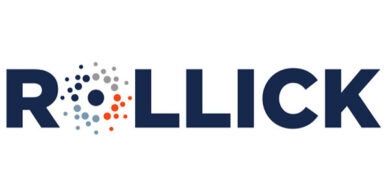Fine-Tuning Your Dealership SEO: National vs. Local
By Brett Morris
I once had a dealer tell me that the “S” in SEO stood for snake oil. I chuckled at the sentiment mostly because I knew where he was coming from. It’s true: Search engine optimization (SEO) has gotten a bad rap over the years due to unscrupulous marketing providers selling backlinks and blogs and, well, snake oil.
It’s easy to understand how SEO got that rap. After all, results can be hard to quantify. Customers don’t always give it the time required to start working. Positive results can be written off as the seasonality of the market. And, of course, Google changes their algorithm all the time. What used to work five years ago and drove tons of traffic to your site, may now be considered spammy, and Google will swiftly drop your site to the depths of – gasp – page 2 or worse of the search results, never to be seen again.
SEO, however, doesn’t have to be this mythical bag of tricks that nobody understands. The concept of SEO is actually quite simple: How can we optimize your web presence so that the people who are looking for your products can actually find you? How we do it is the most important thing to understand. The first thing we need to do is differentiate between local and national SEO. Understanding that difference will make all the difference in the tactics you use to optimize your business.
Don’t fall into the national SEO trap
National SEO means you are trying to rank as highly as possible for keywords or phrases that relate to your product or service on a national level. Simple, right? Well, yes and no. Google a product you sell – something simple like Cub Cadet XT1, and then note the results that pop up. The first few results are going to be dominated by links to cubcadet.com, followed by large national retail outlets like Home Depot and others. It certainly makes sense that Cub Cadet would show up at the top for searches that relate to “Cub Cadet.”
Many factors go into their position at the top of the search results. Important aspects include:
- Domain authority;
- Number of quality backlinks;
- Rich catalog data; and
- Quality of onsite unique content.
It takes a lot of time and effort (and money) to make sure all of the ingredients for Google’s secret sauce are accounted for. And the truth is, it’s a large investment that most dealers simply don’t need to make. Why not? Because you’re trying to reach ready-to-buy local customers – you’re not trying to outrank cubcadet.com.
Plus, keep in mind that if Cub Cadet is doing a great job with their national SEO, that’s going to help brand awareness and local searches that lead customers to your doorstep. If you’re a national brand, an e-commerce store or a very large chain dealership, national SEO is extremely important. But for smaller dealerships, it’s neither realistic nor necessary.
Embracing local SEO
Local SEO means that you are trying to make sure your business shows up as high as possible when potential customers are looking for the product you sell.
In the previous example, someone searching for “Cub Cadet XT1” should expect to find the product page at cubcadet.com rank near the top of search results. The important thing to remember with SEO is that you need to consider the intent of search. Think about how a search for “Cub Cadet XT1” versus “Cub Cadet XT1 near me” or “Cub Cadet dealership” changes how Google interprets the searcher’s intent. When a searcher adds a local qualifier like “near me” or your local city/state to their original search, Google understands that the searcher is looking for a business in their local area and returns results. So Google something like “Cub Cadet dealership near me” and note the results. At the top of the page, you’ll likely see what we call the “map pack” – the map pack displays the top three businesses in your general area that match your original search term.
Think about the importance of a local search and local search intent. If you search for a “Cub Cadet dealership near me” or “lawnmower repair near me,” it stands to reason that you’re looking for a business near you that sells Cub Cadet mowers or can repair your lawnmower. So if you can optimize your business to appear at the top of that list, research indicates that a whopping 75 percent of local-intent searches result in a store visit within 24 hours, ready to buy what you’re selling.
SEO isn’t black magic
So how do you optimize for local-intent searches? Your Google Business Profile holds the key to dominating local search results. I’ve spoken at length about Google Business Profiles – formerly known as Google My Business – in the past (just last issue, as a matter of fact), but understanding how to properly optimize your profile will lead to dominance in the Google map pack.
SEO doesn’t have to be the black-magic tactic that many think it is. It’s perfectly valid and extremely powerful when done correctly. But when done poorly, it can also have a negative effect on your business. So, as with any task you outsource, it’s important to seek validation, ask the right questions and work with a vendor that you know you can trust.
Brett Morris is the owner of Dealers Digital (www.dealersdigital.com), a digital marketing agency for outdoor power equipment dealers, and dealerAMP, a marketing automation platform for the OPE industry. This article first appeared in our April 2022 issue.



